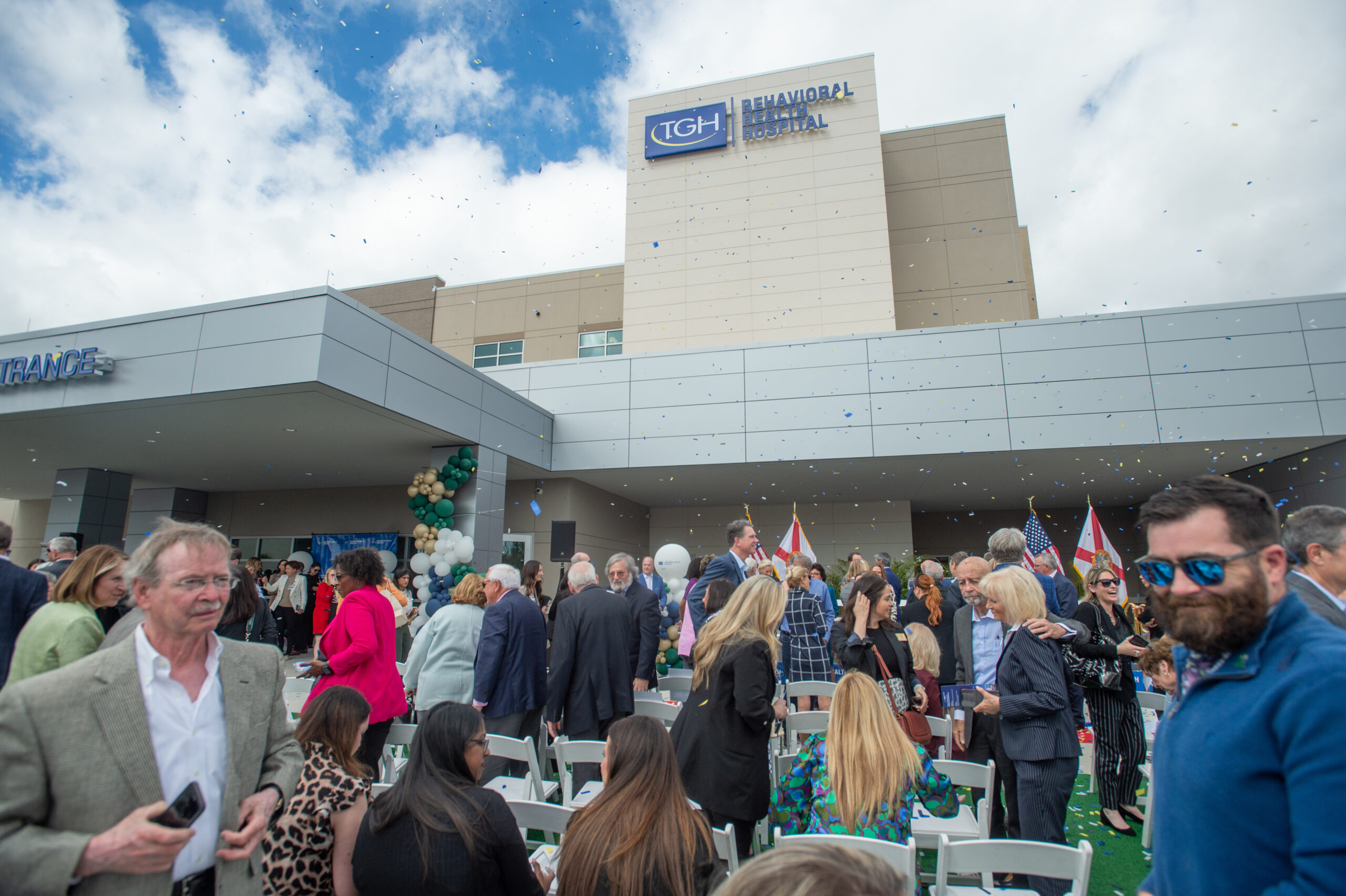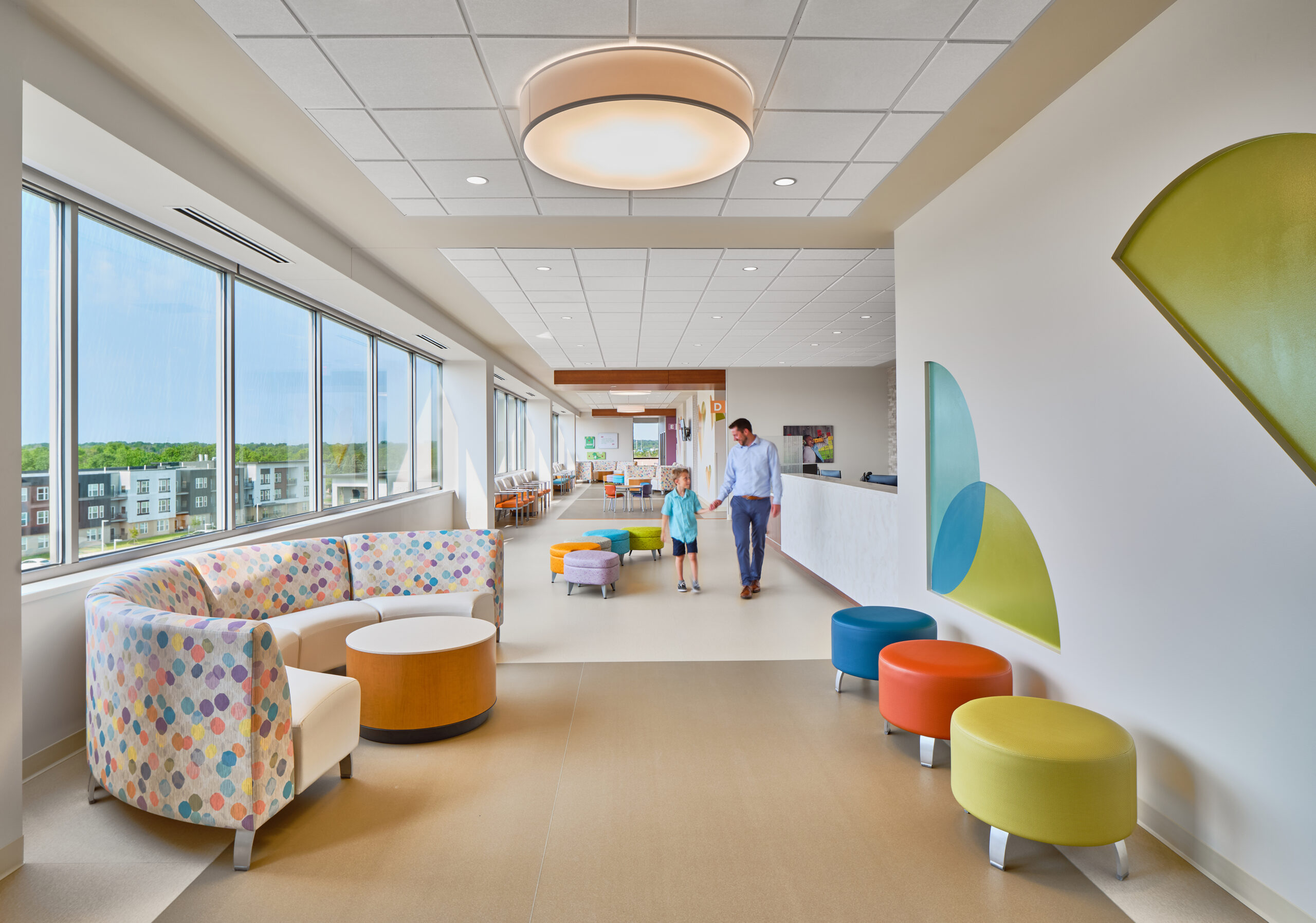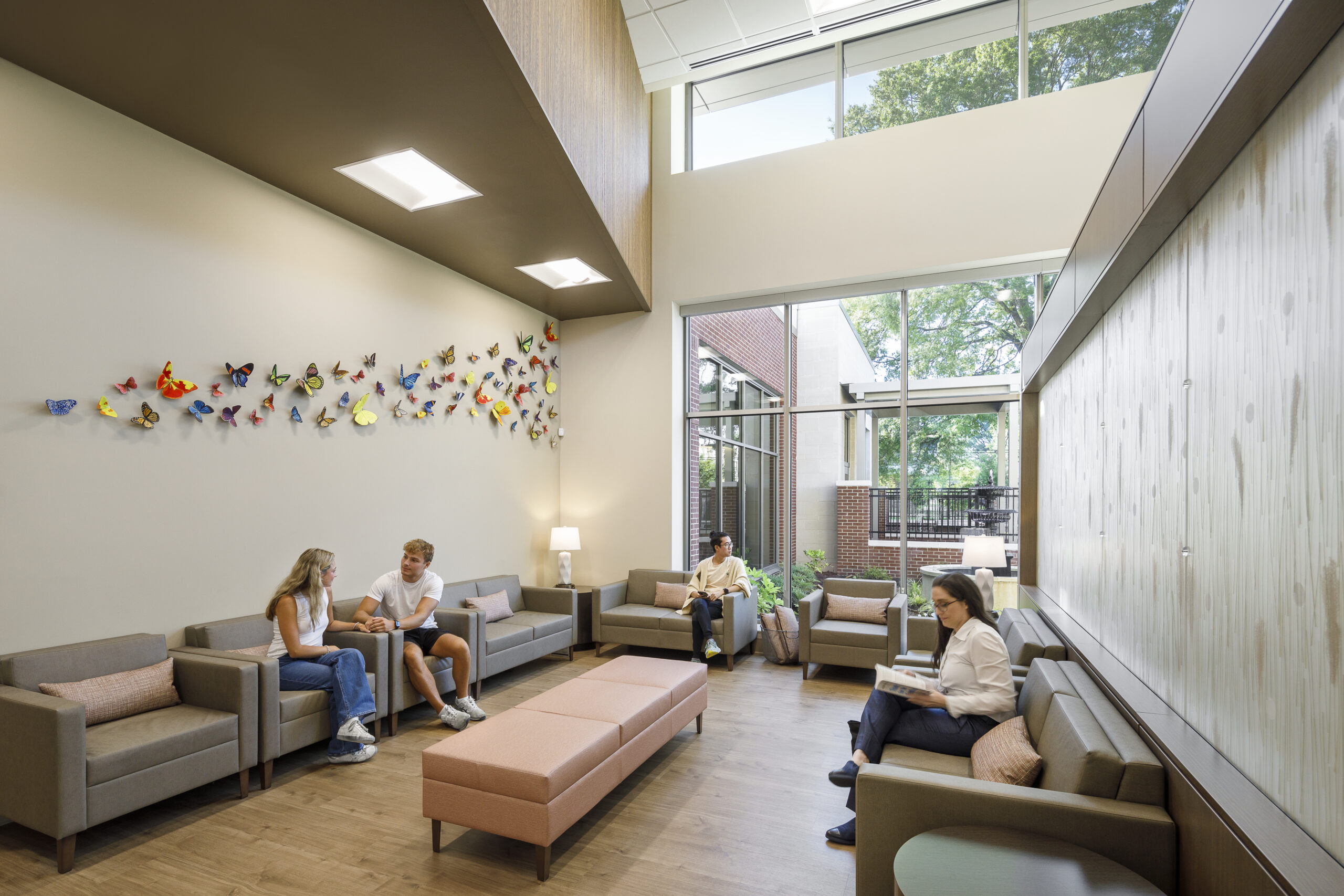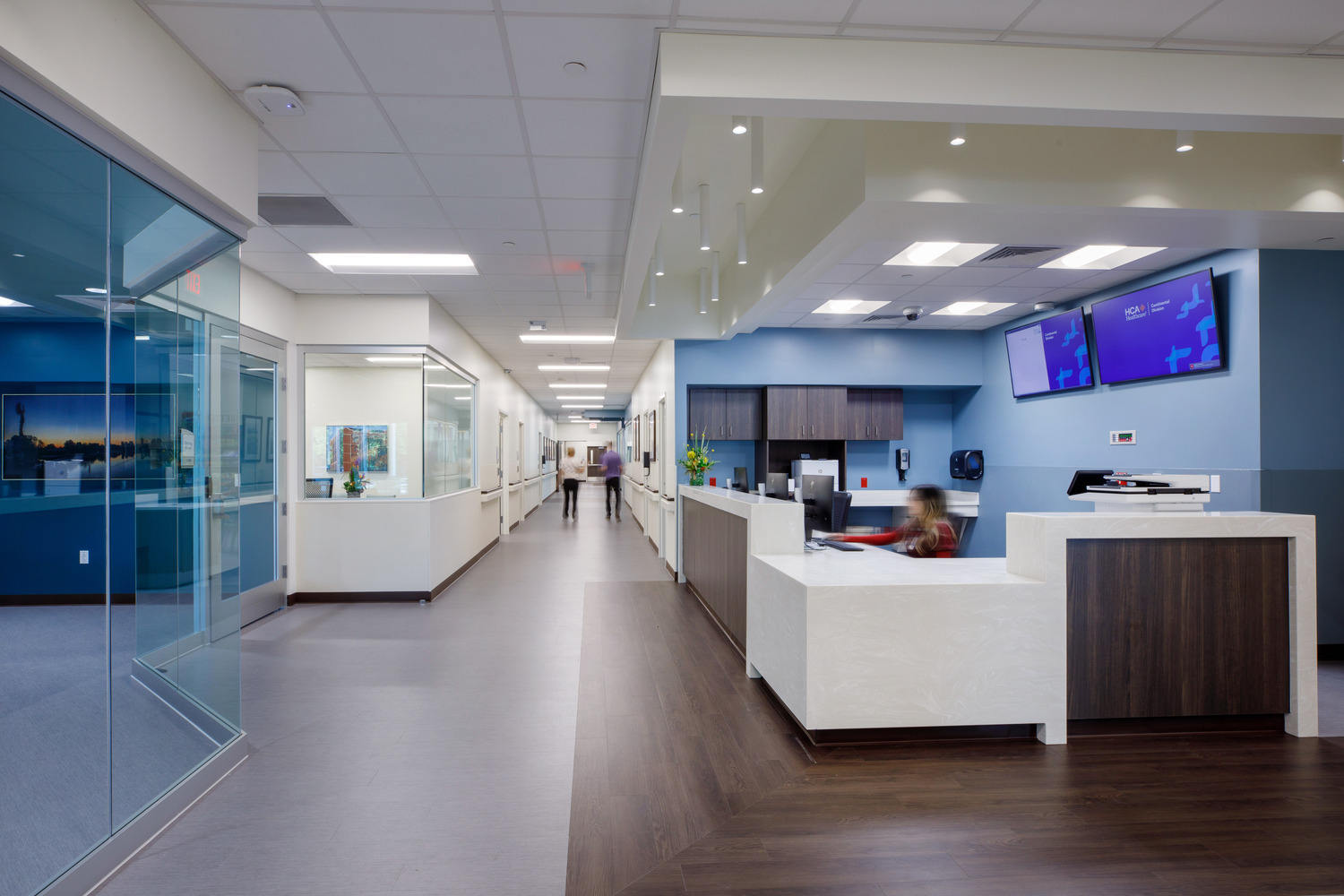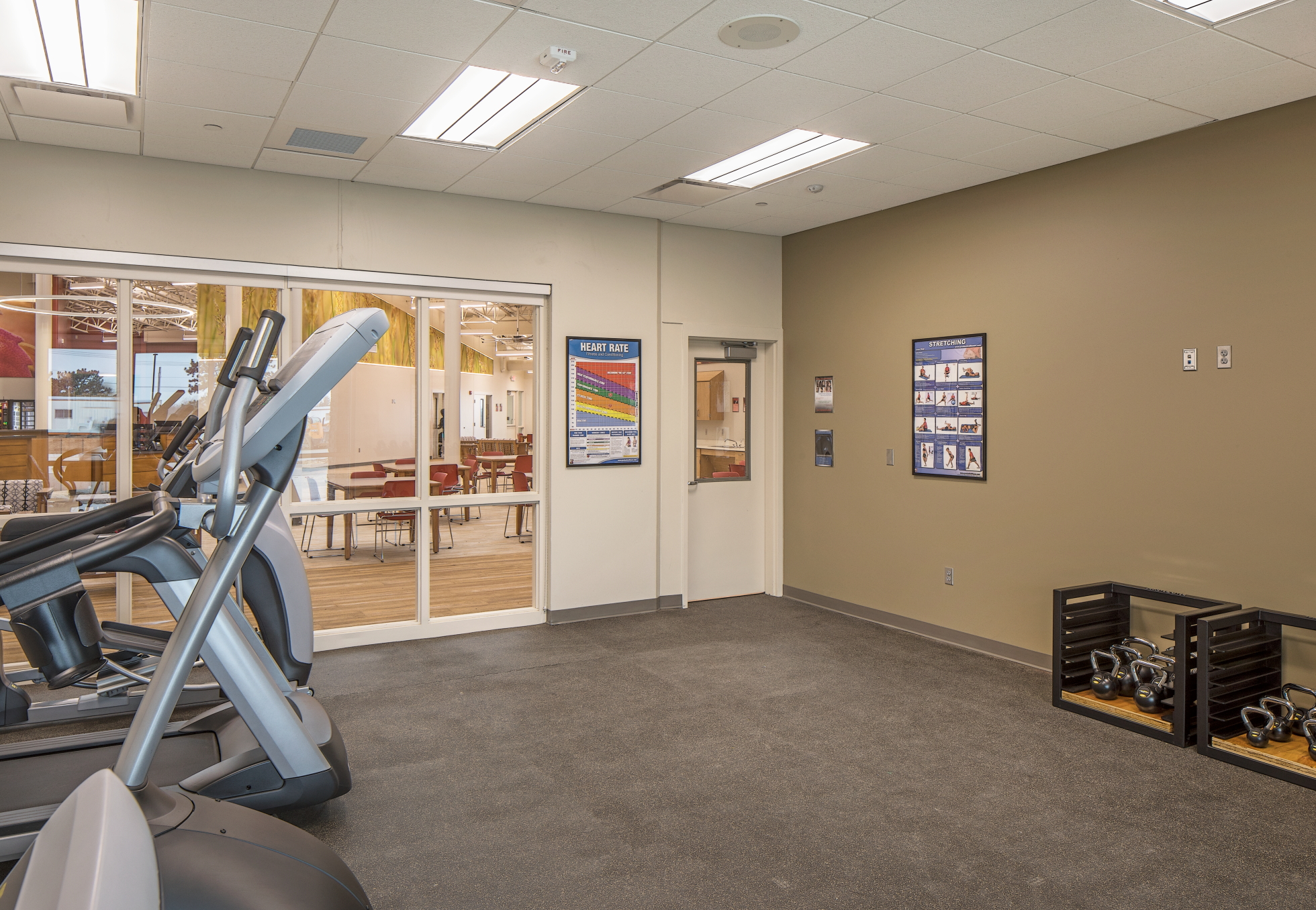By Fay Harvey
TAMPA, Fla. — Made possible through a collaboration between Tampa General Hospital (TGH), Lifepoint Behavioral Hospital and the University of South Florida (USF), Florida’s first free-standing behavioral health teaching hospital has officially opened inside the Tampa Medical and Research District, the region’s hub for clinical care, academics, research and biotechnology.
Demand for mental health care in the area is rising, putting pressure on nearby emergency rooms, which are experiencing an influx of patients seeking mental health services. To help alleviate this strain, the new 83,000-square-foot Medicare and Medicaid Services-certified (CMS) TGH Behavioral Hospital features four levels devoted to inpatient and outpatient mental health services for community members of all ages, while the nearby USF Health Morsani College of Medicine will use the facility to train medical students and residents. TGH Behavioral Hospital psychiatrists, psychologists as well as Tampa General therapists and behavioral nursing staff will have access to modern research and state-of-the-art technology.
“This new facility marks a significant step forward in mental health care for individuals and families across Tampa Bay and beyond,” said Jeff Wherry, senior project manager for contractor JE Dunn Construction, in a statement. “It’s fulfilling to see the team’s hard work and dedication come to life on this project, knowing it will have a meaningful impact on the lives of so many people in our community.”
Indoor Safety
The 96-bed behavioral health facility, which offers 24-hour access to care for medicinal, safety and therapeutic needs, required extensive planning and collaboration between all stakeholders. The project team—including JE Dunn of Kansas City, Mo; Stengel Hill Architects of Louisville, K.Y.; Skyhook Structural Engineers of Brentwood, Tenn.; and MEP Engineers CMTA Inc. of Louisville— worked together to develop the unique facility, which required specific safety features, ligature-resistant requirements and a precise workflow.
For example, unlike more typical healthcare construction, simply adding another access panel is not generally an option for behavioral facilities, due to the need for tamper-resistant, safe spaces. As patient rooms and other care areas usually feature fixed (i.e., hard lid) ceilings, more careful consideration and coordination was required for construction, inspection and maintenance access while also maintaining design intent.
The building’s interior features a patient-centered, low-risk design by implementing specialty doors, furniture and tamper-resistant screws. Specific locations for every mechanical, engineering and plumbing component were meticulously planned during the building information modeling process to ensure safety and efficiency. Additionally, through the facility’s paint colors, finishes, artwork and access to activity and outdoor space, patients are made to feel a sense of peace, hope and healing.
“One of our favorite aspects of the interior design is that it creates such a calming patient environment, with a bustling city right outside its windows,” said members of the JE Dunn and Stengel Hill Architecture team in a shared statement.
Outside, a secure outdoor recreation area includes a basketball court, as access to outdoor spaces leads to better health outcomes, reduced stress, improved mood and enhanced cognitive function.
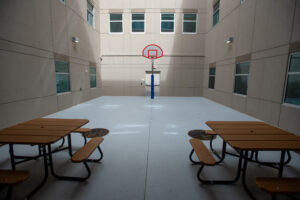
“Knowing patients have opportunities to safely and securely enjoy outdoor recreation is key aspect of the facility’s ability to positively impact patients,” said the JE Dunn and Stengel Hill Architecture team in a shared statement.
Blending Into the Environment
Located on a smaller urban site on the outskirts of downtown Tampa, the building’s exterior mirrors the surrounding medical and research district through the use of brick and metal prefabricated wall panels. To coincide with the construction schedule and build quickly before the onset of Florida’s hurricane season, prefabricated exterior wall panels proved to be an efficient, reliable option.
The facility is also adjacent to the TGH Kennedy Emergency Center, which allows patients who are experiencing a mental health crisis to quickly be treated at the new hospital as necessary. The two facilities, along with the TGH Rehabilitation center, also share walkways and parking.
“This is the start of a new era in mental health care, combining academic excellence with patient-centered treatment,” said Doug Leonardo, CEO of TGH Behavioral Health Hospital, in a statement. “The TGH Behavioral Health Hospital will transform the landscape of behavioral health services in Florida, ensuring that individuals and families receive the support they need for mental wellness and recovery.”


